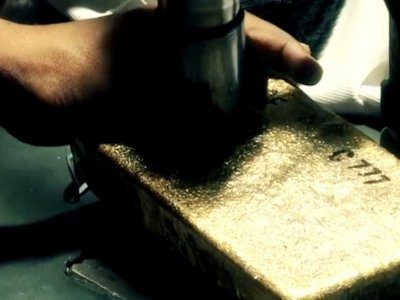Iran’s permanent representative to the International Atomic Energy Agency (IAEA) Ali Asghar Soltanieh said Iran has offered to stop enriching uranium to a purity level of 20 percent if the West lifts sanctions against Tehran, semi- official Mehr news agency reported Wednesday.
Soltanieh said that the offer was made in a meeting between Iran’s chief nuclear negotiator Saeed Jalili and European Union foreign policy chief Catherine Ashton in Istanbul earlier this month.
“We are prepared to suspend enrichment to 20 percent, provided that we find a reciprocal step compatible with it,” Soltanieh was quoted as saying.
“We said this in Istanbul,” he said, adding that “If we do that, there shouldn’t be sanctions.”
On Sept. 18, Ashton met with Iranian officials in Istanbul in a bid to end the standoff over the Iranian nuclear program. Jalili said the two sides were satisfied with what they had agreed during the talks.
On Wednesday, Commander of the Islamic Revolution Guards Corps Major General Mohammad-Ali Jafari said the Iranian enemies have resorted to economic sanctions and pressures since they have realized that they cannot engage in direct confrontation with the Islamic republic, semi-official Fars news agency reported.
Jafari said the enemies have found out that their actions against Iran have backfired and the Islamic revolution has been exported to the world nations against their will.
The Israelis still continue their threats, but at the same time they have realized that they cannot fight the Islamic revolution through a direct battle, Jafari said, adding that, for that reason they have resorted to exaggerating the social problems of our country and the Islamic ruling system.
“Today, the world has found out that threatening the Islamic revolution is futile, yet those who are less wise and rational have still resorted to other methods such as different sanctions and political threats,” Jafari was quoted as saying.
Also, Iran’s President Mahmoud Ahmadinejad said that the imposition of sanctions by the global hegemony indicates its weakness in dealing with independent nations, Press TV reported on Wednesday.
“Sanctions and the exertion of pressure by the global arrogance and bullying powers against independent nations are not indicative of a position of power but rather the weakness of these countries in dealing with the logic of the independent states,” Ahmadinejad was quoted as saying in a meeting with his Bolivian counterpart Evo Morales on the sidelines of the 67th UN General Assembly.
“The enemies of the independent nations know better than anyone else that these pressures and sanctions will lead nowhere,” he added.
China on Wednesday reiterated its opposition to sanctions on Iran over Tehran’s controversial nuclear program.
“The Chinese side has long been opposed to any unilateral sanctions on Iran,” said Chinese Foreign Ministry spokesman Hong Lei.
He added that sanctions cannot ultimately help to resolve the Iranian nuclear issue, but will only further worsen and escalate the issue, “which will do no good in regional peace and stability. ”
All sides concerned should increase dialogues and boost cooperation to seek an appropriate solution to the issue through negotiations, said the spokesman.
On Wednesday, Iranian deputy nuclear negotiator Ali Baqeri said that Iran insists on its “nuclear rights,” semi-official ISNA news agency reported.
The Islamic republic persists the total vindication of its rights to enjoy all the capacities for peaceful nuclear technology, Baqeri was quoted as saying.
During the meeting between Jalili and Ashton in Istanbul last week, Iran offered some proposals, reiterated its insistence on the nuclear rights and demanded Ashton’s response, Baqeri said.
“Due to Iran’s clear logic in its proposals, it is now the turn of the P5+1 — the five permanent members of the UN Security Council plus Germany — to respond to these proposals,” said the Iranian official.
Iran insists that its nuclear program is solely for peaceful purposes, and warned that it will retaliate if it comes under an attack.
Iranian nuclear talks in June ended without a breakthrough, while the P5+1 are expected to discuss with Tehran on the sidelines of the ongoing UN General Assembly in New York.
via Iran to Give up 20 pct Uranium Enrichment if West Lifts Sanctions.




